
Nakasu: The Pulsing Heart of Fukuoka's Nightlife
Nestled between the Naka and Hakata Rivers, Nakasu is Fukuoka's most vibrant nightlife district. By day, this area is a bustling business hub, but as the sun sets, Nakasu transforms into a lively playground teeming with neon lights, izakayas, and entertainment venues. This dynamic neighbourhood offers a glimpse into Fukuoka's modern yet traditional culture, making it a must-visit for any traveler. Stepping into Nakasu, you'll be greeted by a maze of narrow streets filled with local eateries, known as yatai, serving up delicious Hakata ramen and other regional delicacies. These open-air food stalls provide an authentic taste of Fukuoka, allowing you to dine under the stars while mingling with locals and fellow tourists. The atmosphere here is always buzzing, creating an unforgettable dining experience. Beyond its culinary delights, Nakasu is also home to a variety of entertainment options. From karaoke bars and nightclubs to more traditional forms of entertainment like Kabuki theaters, there's something to suit all tastes. The district's central location makes it easy to explore, with many attractions within walking distance. Whether you're here for the food, the nightlife, or the cultural experiences, Nakasu offers an eclectic mix that promises to leave you captivated.
Local tips in Nakasu
- Visit the yatai food stalls early in the evening to secure a seat and enjoy a variety of local dishes.
- Carry cash, as many yatai and smaller establishments do not accept credit cards.
- Explore the side streets to find hidden gems and less crowded eateries.
- Be mindful of the last train times if you're staying outside the district, as taxis can be expensive.
- Dress smart-casual if you plan on visiting higher-end bars and clubs.
Nakasu: The Pulsing Heart of Fukuoka's Nightlife
Nestled between the Naka and Hakata Rivers, Nakasu is Fukuoka's most vibrant nightlife district. By day, this area is a bustling business hub, but as the sun sets, Nakasu transforms into a lively playground teeming with neon lights, izakayas, and entertainment venues. This dynamic neighbourhood offers a glimpse into Fukuoka's modern yet traditional culture, making it a must-visit for any traveler. Stepping into Nakasu, you'll be greeted by a maze of narrow streets filled with local eateries, known as yatai, serving up delicious Hakata ramen and other regional delicacies. These open-air food stalls provide an authentic taste of Fukuoka, allowing you to dine under the stars while mingling with locals and fellow tourists. The atmosphere here is always buzzing, creating an unforgettable dining experience. Beyond its culinary delights, Nakasu is also home to a variety of entertainment options. From karaoke bars and nightclubs to more traditional forms of entertainment like Kabuki theaters, there's something to suit all tastes. The district's central location makes it easy to explore, with many attractions within walking distance. Whether you're here for the food, the nightlife, or the cultural experiences, Nakasu offers an eclectic mix that promises to leave you captivated.
Iconic landmarks you can’t miss
CANAL CITY HAKATA
Experience Fukuoka's 'city within a city' – a vibrant complex with shopping, entertainment, stunning architecture, and captivating canal fountain shows.
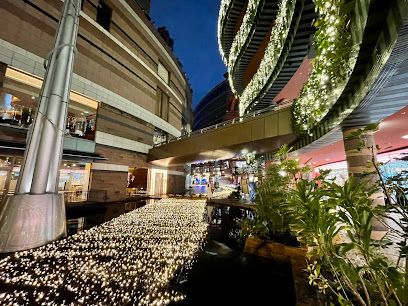
Kushida Shrine
Explore Fukuoka's spiritual heart at Kushida Shrine, home to the Hakata Gion Yamakasa festival and ancient cultural treasures.
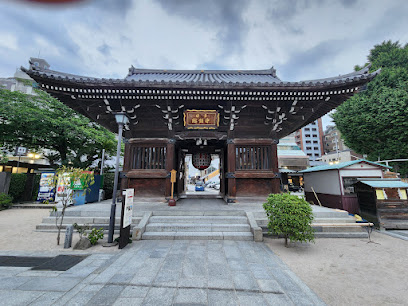
Sumiyoshi Jinja
Discover Fukuoka's oldest Sumiyoshi Shrine: a serene escape with rich history, traditional architecture, and cultural significance.
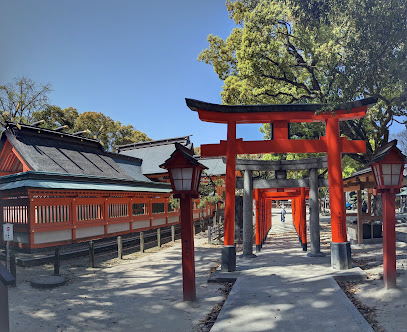
Nakasu Yatai Yokocho (Food Stalls Street)
Experience Fukuoka's vibrant nightlife at Nakasu Yatai Yokocho, savoring Hakata ramen, yakitori, and more in a lively, communal atmosphere.
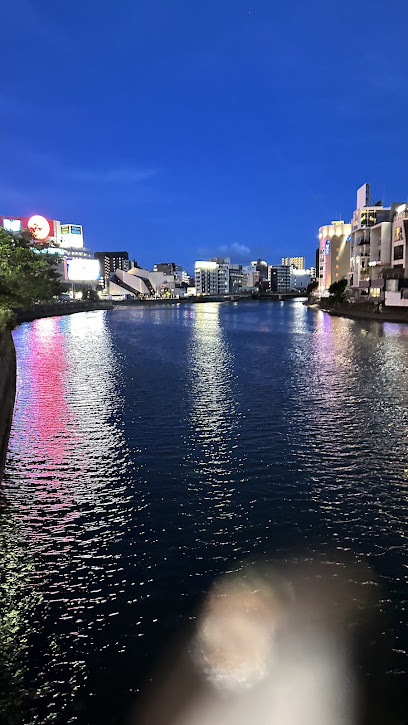
Seiryu Park
Escape to tranquility at Seiryu Park in Nakasu, Fukuoka, where lush greenery meets modern leisure and enchanting riverside views.
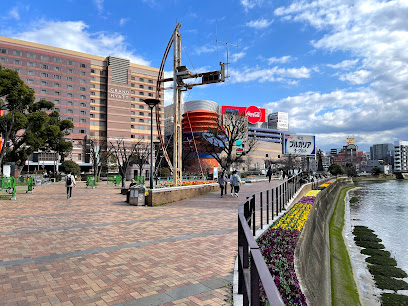
Hakatamachiya Furusatokan
Step back in time at Hakatamachiya Furusatokan and discover the rich history, crafts, and traditions of Fukuoka's Hakata district.
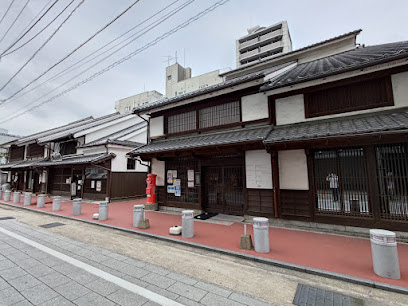
Fukuoka Red Brick Culture Museum
Immerse yourself in the rich heritage of Fukuoka at the Red Brick Culture Museum, where history and culture come alive.
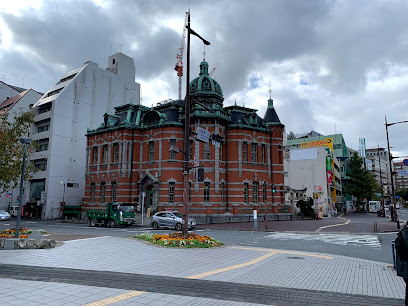
Fuku-Haku Deai Bridge
Cross the Fuku-Haku Deai Bridge in Fukuoka: Where history, culture, and stunning city views meet on the Naka River.
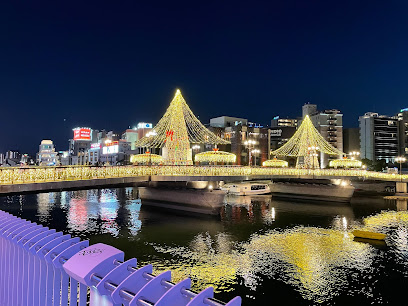
Lantern Marker, trademark for the Fukuoka & Hakata families.
Discover Fukuoka's Lantern Marker: A historical landmark embodying the cultural heritage of the Hakata family.
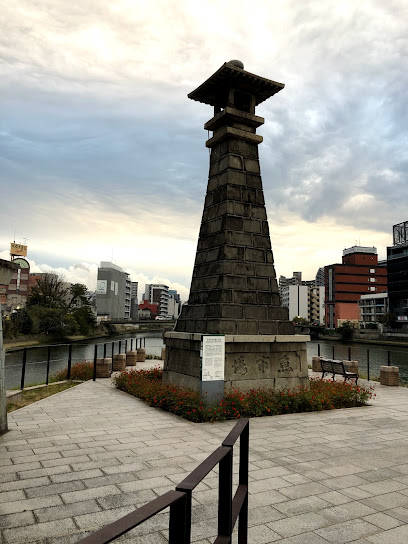
Statue of Otojiro Kawakami
A tribute to Otojiro Kawakami, the father of modern Japanese theater, located in the vibrant Kamikawabatamachi district of Fukuoka.
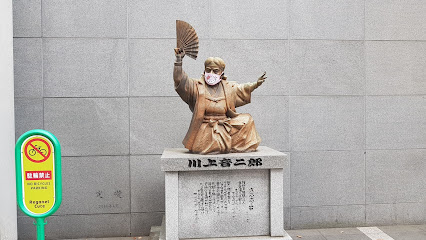
Nakasukanrakugai
Experience Fukuoka's vibrant nightlife, delicious street food, and dazzling entertainment in the heart of Nakasukarakugai.
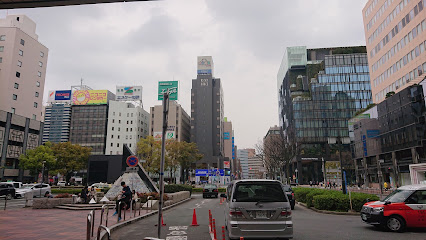
博多名物うまかもん通り
Experience the rich heritage of Fukuoka at the Hakata Folk Museum, where traditional crafts and culture come to life in an engaging setting.
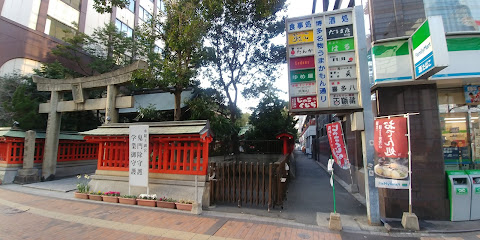
Nakasukake Bridge
Discover Nakasukake Bridge in Fukuoka: a serene escape offering tranquil views and a peaceful retreat in the heart of the city.

Unmissable attractions to see
Ohori Park
Discover the natural beauty and recreational charm of Ohori Park, a serene urban retreat in the heart of Fukuoka, Japan.
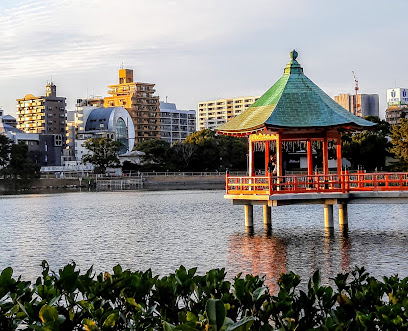
Fukuoka Asian Art Museum
Explore the Fukuoka Asian Art Museum, a modern hub showcasing contemporary Asian art and culture in the vibrant city of Fukuoka, Japan.
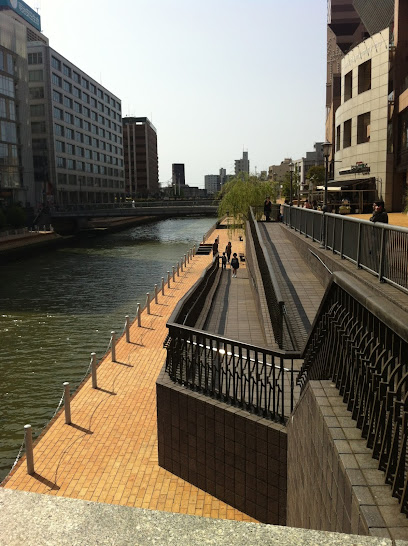
Reisen Park
Discover the beauty of Reisen Park in Fukuoka, where lush gardens and tranquil paths await every visitor.
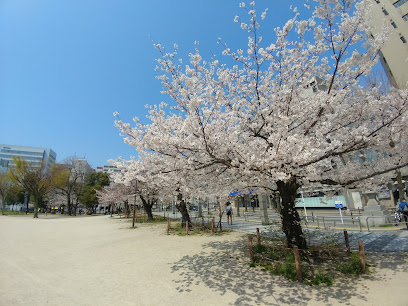
Seiryu Park
Discover the tranquility of Seiryu Park in Fukuoka, a lush urban oasis perfect for relaxation, nature walks, and stunning seasonal views.
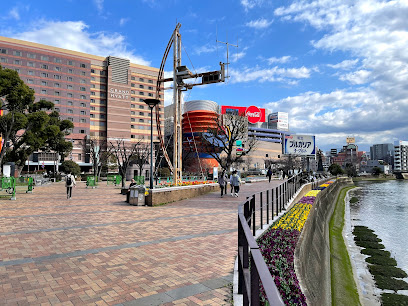
Lantern Marker, trademark for the Fukuoka & Hakata families.
Explore the Lantern Marker, a historical landmark in Fukuoka that combines rich cultural heritage with stunning river views.
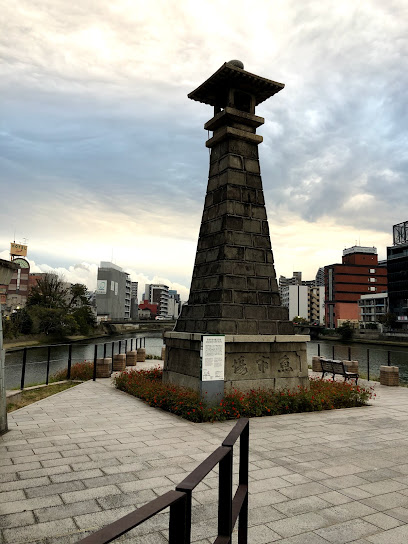
Statue of Otojiro Kawakami
Discover the Statue of Otojiro Kawakami in Fukuoka – a captivating tribute to Japan's theatrical heritage surrounded by local culture and charm.
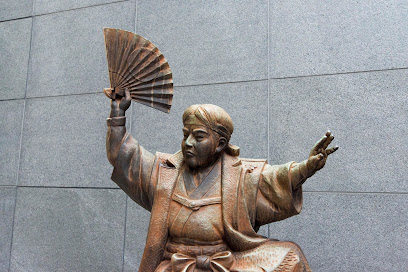
Nakasukanrakugai
Experience the vibrant culture, delicious cuisine, and lively atmosphere at Nakasukanrakugai, Fukuoka's premier tourist attraction.
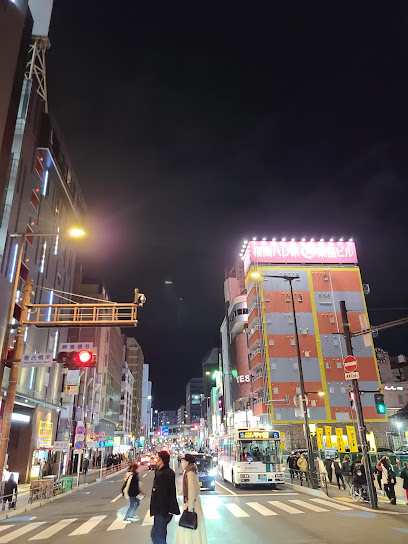
博多名物うまかもん通り
Discover the heart of Fukuoka's craftsmanship at the Hakata Traditional Craft Center, where tradition and creativity intertwine for an unforgettable experience.
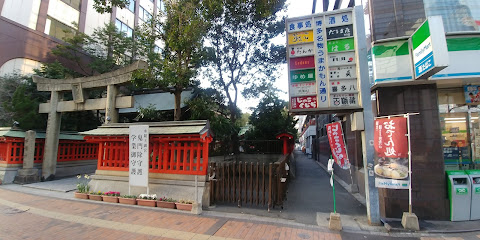
Essential places to dine
Osakaya
Discover the authentic tastes of Japan at Osakaya, Fukuoka's beloved regional restaurant offering seasonal delights.
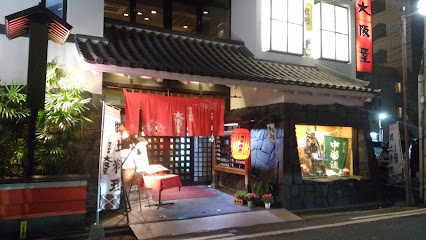
California Cotton Fields
Experience the vibrant fusion of Californian flavors and modern izakaya dining at California Cotton Fields in Fukuoka.
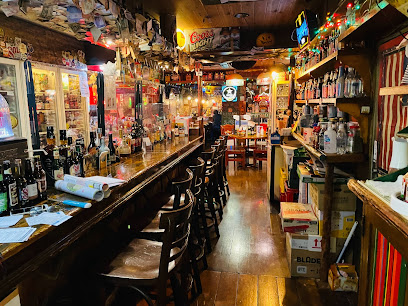
THE LIVELY KITCHEN FUKUOKA HAKATA
Experience exquisite Italian cuisine with a Japanese twist at The Lively Kitchen Fukuoka Hakata - a buffet haven for food enthusiasts.
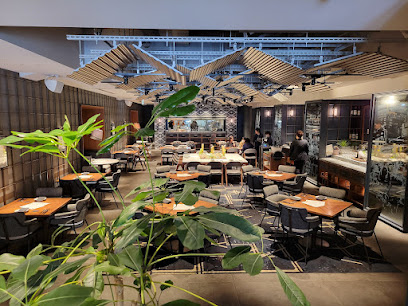
Omusubimura
Discover Omusubimura in Fukuoka - where authentic Japanese flavors meet warm hospitality in a vibrant setting.
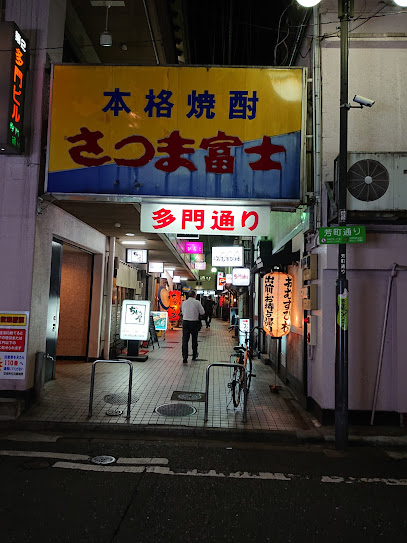
すしお料理処まつやま
Experience authentic sushi at Matsuyama in Fukuoka – where tradition meets exquisite flavor in every bite.
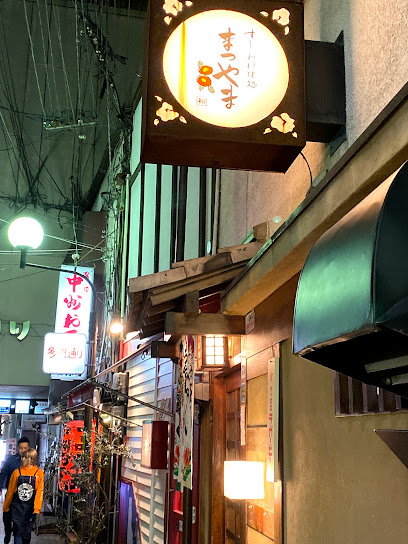
TEBASTA 中洲本店
Discover authentic Japanese flavors at TEBASTA Nakasu - where tradition meets taste in the heart of Fukuoka.
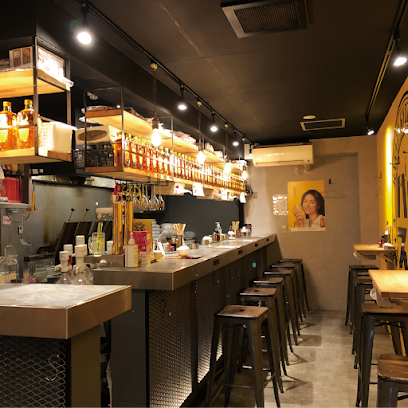
中洲 KURODA
Explore Fukuoka's culinary scene at 中洲 KURODA—where tradition meets modernity in an unforgettable dining experience.
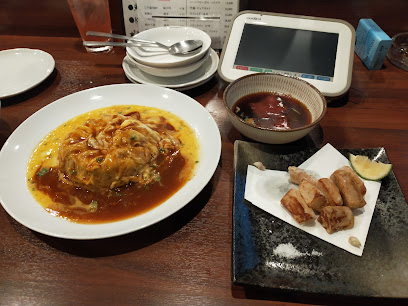
Somuri Nakasu
Discover the rich flavors of expertly grilled steak at Somuri Nakasu in Fukuoka's lively Nakasu district.
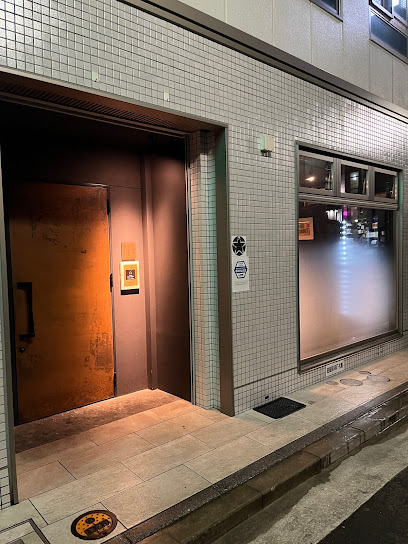
Nakasu Sushi Kappo Ryu
Discover exquisite sushi craftsmanship in Fukuoka's vibrant Nakasu district at Nakasu Sushi Kappo Ryu.
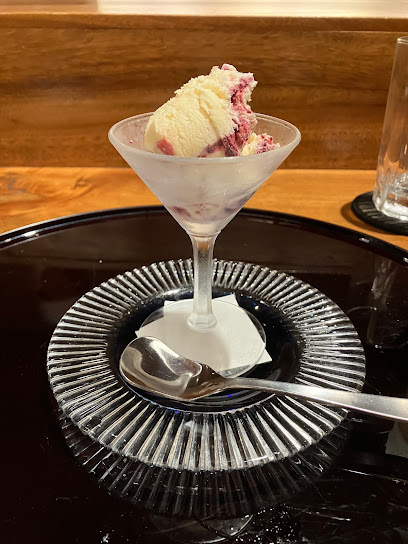
Nakasu Hajime
Discover authentic Japanese flavors at Nakasu Hajime in Fukuoka - where tradition meets modern dining in a vibrant atmosphere.
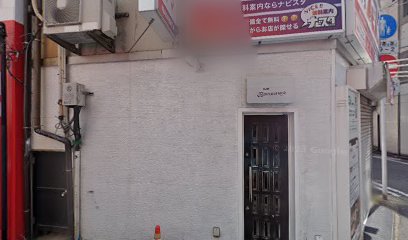
Markets, malls and hidden boutiques
Don Quijote Nakasu
Explore the eclectic offerings of Don Quijote Nakasu, Fukuoka's ultimate discount store for beauty, fashion, and unique souvenirs.
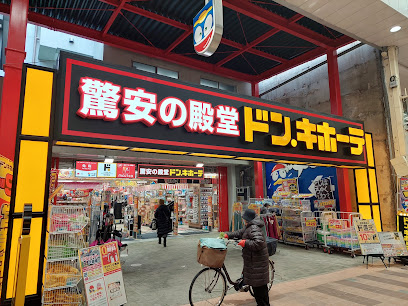
Tenjin Underground Mall
Discover the Tenjin Underground Mall in Fukuoka, a vibrant shopping haven with diverse stores, eateries, and a unique underground atmosphere.
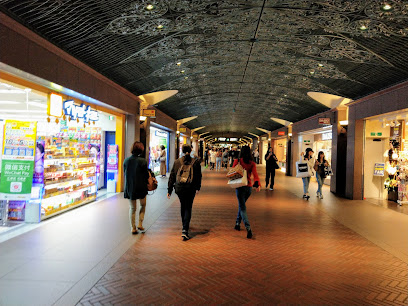
Don Quijote Fukuoka Tenjin Honten
Explore the vibrant world of shopping at Don Quijote Fukuoka Tenjin Honten, where discounted treasures await you around every corner.
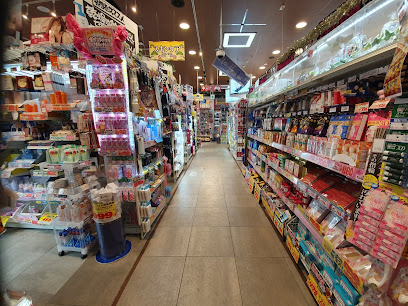
Canal City Opa
Experience the vibrant shopping, dining, and entertainment at Canal City Opa, the heart of Fukuoka's retail scene.
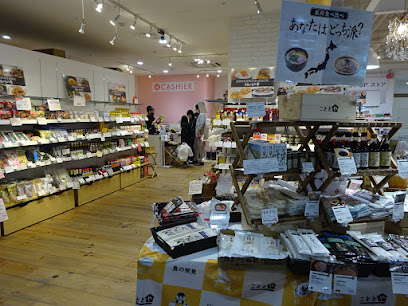
HAKATA RIVERAIN MALL by TAKASHIMAYA
Discover a shopping paradise at Hakata Riverain Mall in Fukuoka, where trendy boutiques, delicious dining, and vibrant culture await every visitor.
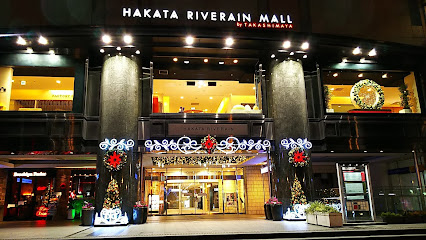
gate's Fukuoka
Discover shopping and dining bliss at gate's Fukuoka, a vibrant mall in the heart of Hakata Ward offering diverse stores and culinary delights.
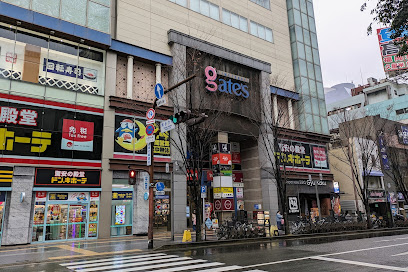
Aji no Mentaiko Fukuya Nakasu Main Store
Experience the flavors of Fukuoka with exquisite mentaiko and unique souvenirs at Aji no Mentaiko Fukuya Nakasu Main Store, a must-visit for every traveler.
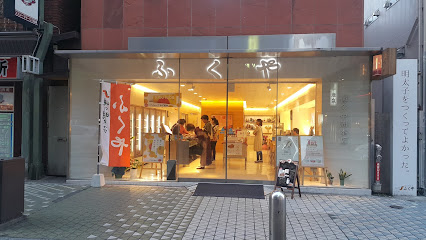
The Hakata Gift Shop (Canal City Hakata Store)
Explore Fukuoka's charm at The Hakata Gift Shop, a treasure trove of unique souvenirs, local sweets, and traditional crafts in Canal City Hakata.
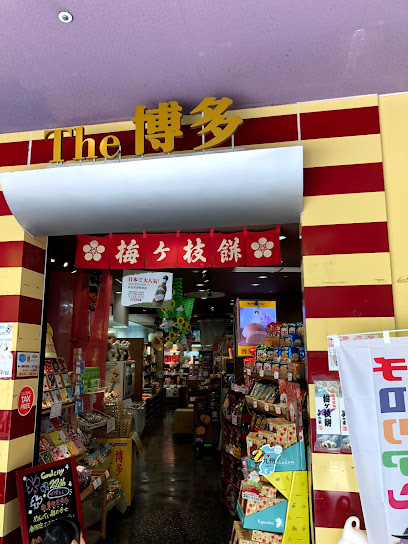
LACHIC Fukuoka Tenjin
Explore LACHIC Fukuoka Tenjin, a premier department store offering a unique shopping experience with local flair in the heart of Fukuoka.
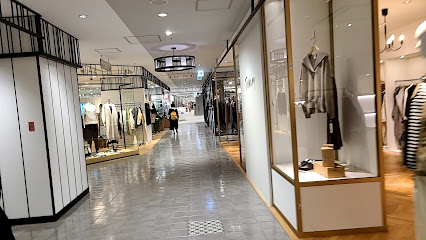
Handa Japanese Clothing Shop (Japanese Art Stitched Jackets-Sukajan Jackets)
Explore the beauty of Japanese artistry at Handa Japanese Clothing Shop, home to exquisite Sukajan jackets and unique fashion pieces.
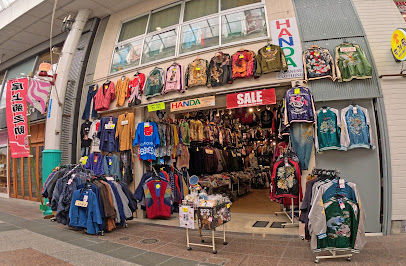
Essential bars & hidden hideouts
Highball Bar Nakasu 1923
Discover the charm of Highball Bar Nakasu 1923 in Fukuoka, where expertly crafted cocktails meet a vibrant nightlife atmosphere.
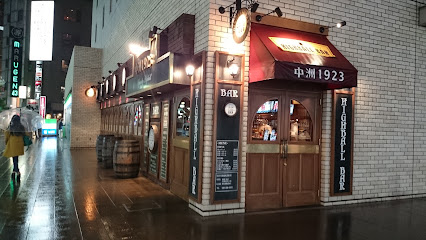
ニッカバー 七島
Explore Fukuoka's nightlife at ニッカバー 七島, a vibrant bar serving an array of drinks in a welcoming atmosphere, perfect for socializing.
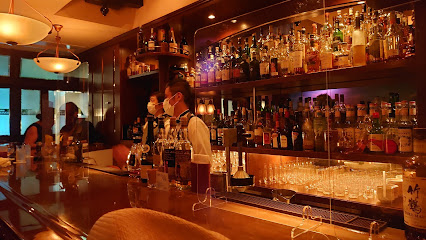
Higuchi
Discover Higuchi Bar: Fukuoka's premier destination for cocktails and nightlife in the heart of Nakasu, blending tradition and modern flair.
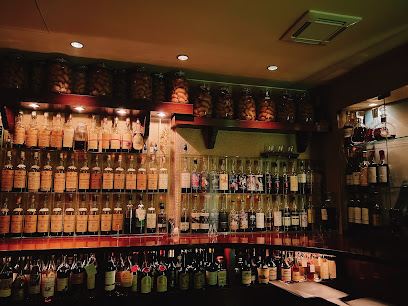
es ROOFTOP GARDEN BAGUS NAKASU
Discover the ultimate rooftop dining experience in Fukuoka at es ROOFTOP GARDEN BAGUS NAKASU, where modern izakaya meets stunning city views.
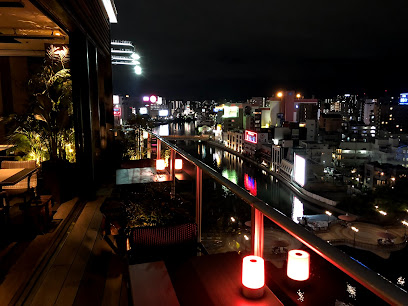
Komasa
Discover the exquisite cocktails of Komasa, a premier cocktail bar in Fukuoka's lively Nakasu district, where tradition meets innovation in every sip.
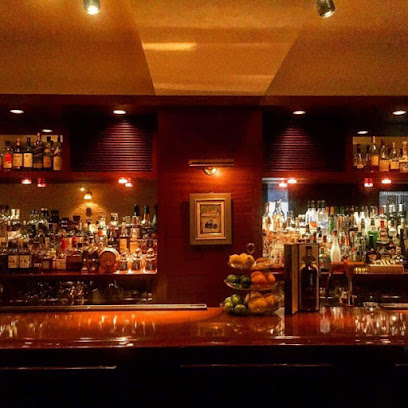
Tonic
Experience the finest cocktails in the heart of Fukuoka's nightlife at Tonic, where innovation meets tradition in every drink.
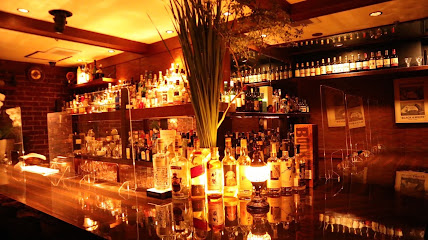
Sebek
Experience the vibrant nightlife of Fukuoka at Sebek, a trendy bar in Nakasu offering innovative cocktails and a welcoming atmosphere.
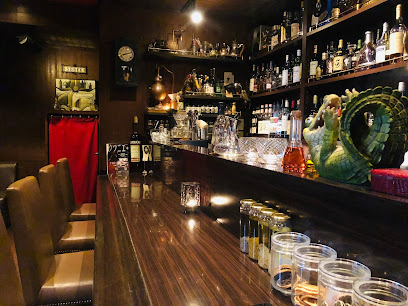
バー ジータ Bar Gita
Discover the lively nightlife at Bar Gita in Fukuoka, where creative cocktails and a vibrant atmosphere await every visitor.
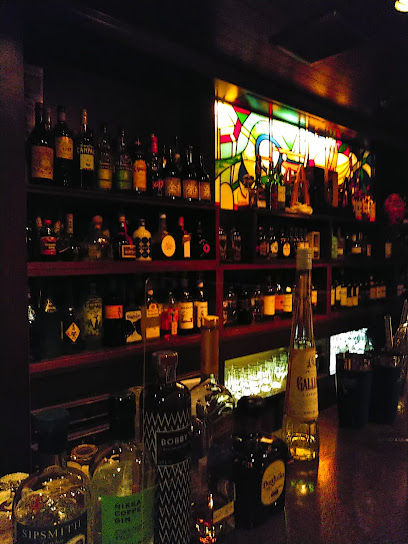
Filipo Lounge | International Bar
Experience the lively ambiance of Filipo Lounge, Fukuoka's premier international bar, perfect for unforgettable nights with friends.
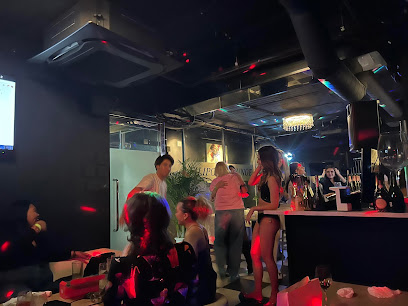
Hideout Bar
Experience the vibrant nightlife of Fukuoka at Hideout Bar, where stylish ambiance meets exceptional drinks and friendly service.
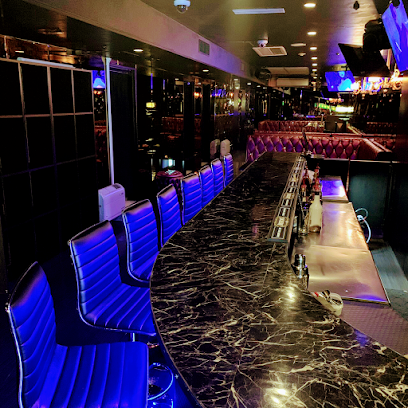
Local Phrases
-
- Helloこんにちは
[Kon'nichiwa] - Goodbyeさようなら
[Sayōnara] - Yesはい
[Hai] - Noいいえ
[Īe] - Please/You're welcomeどうぞ
[Dōzo] - Thank youありがとう
[Arigatō] - Excuse me/Sorryすみません
[Sumimasen] - How are you?お元気ですか?
[Ogenki desu ka?] - Fine. And you?元気です。あなたは?
[Genki desu. Anata wa?] - Do you speak English?英語を話せますか?
[Eigo o hanasemasu ka?] - I don't understand理解できません
[Rikai dekimasen]
- Helloこんにちは
-
- I'd like to see the menu, pleaseメニューを見せていただきたいです
[Menyū o misete itadakitai desu] - I don't eat meat私は肉を食べません
[Watashi wa niku o tabemasen] - Cheers!乾杯!
[Kanpai!] - I would like to pay, pleaseお会計をお願いします
[O-kaikai o onegaishimasu]
- I'd like to see the menu, pleaseメニューを見せていただきたいです
-
- Help!助けて!
[Tasukete!] - Go away!行って!
[Itte!] - Call the Police!警察を呼んで!
[Keisatsu o yonde!] - Call a doctor!医者を呼んで!
[Isha o yonde!] - I'm lost道に迷いました
[Michi ni mayoimashita] - I'm ill具合が悪い
[Guai ga warui]
- Help!助けて!
-
- I'd like to buy......を買いたいです
[... o kaitai desu] - I'm just looking見てただけです
[Mite tada desu] - How much is it?いくらですか?
[Ikura desu ka?] - That's too expensiveそれは高すぎます
[Sore wa takasugimasu] - Can you lower the price?値引きしてもらえますか?
[Nebiki shite moraemasu ka?]
- I'd like to buy......を買いたいです
-
- What time is it?今何時ですか?
[Ima nanji desu ka?] - It's one o'clock一時です
[Ichiji desu] - Half past (10)10時半
[Jūji han] - Morning朝
[Asa] - Afternoon午後
[Gogo] - Evening夕方
[Yuugata] - Yesterday昨日
[Kinō] - Today今日
[Kyō] - Tomorrow明日
[Ashita] - 1一
[Ichi] - 2二
[Ni] - 3三
[San] - 4四
[Shi] - 5五
[Go] - 6六
[Roku] - 7七
[Nana] - 8八
[Hachi] - 9九
[Kyū] - 10十
[Jū]
- What time is it?今何時ですか?
-
- Where's a/the...?...はどこですか?
[... wa dokodesu ka?] - What's the address?住所は何ですか?
[Jūsho wa nan desu ka?] - Can you show me (on the map)?地図で見せてもらえますか?
[Chizu de misete moraemasu ka?] - When's the next (bus)?次の(バス)はいつですか?
[Tsugi no (basu) wa itsu desu ka?] - A ticket (to ....)切符(...まで)
[Kippu (... made)]
- Where's a/the...?...はどこですか?
History of Nakasu
-
Nakasu, situated on an island between the Nakagawa River and the Tenjin River, has a history that dates back to the Edo period (1603-1868). Originally a thriving merchant district, it became known for its bustling trade and vibrant street life. The area was initially characterized by teahouses and inns that catered to travelers and merchants, establishing Nakasu as a cultural and commercial hub in Fukuoka.
-
In the post-war era, Nakasu gained prominence for its yatai (food stalls), which became emblematic of Fukuoka's culinary culture. These mobile eateries serve various local delicacies, including ramen, yakitori, and tempura. The yatai tradition reflects the community's resilience and adaptability, creating a unique dining experience that draws both locals and tourists alike.
-
By the late 20th century, Nakasu evolved into a renowned entertainment district, known for its nightlife and vibrant atmosphere. The area is home to numerous bars, clubs, and theaters, contributing to Fukuoka's reputation as a city that never sleeps. This transformation was fueled by increased urbanization and the influx of visitors seeking leisure and entertainment options.
-
Nakasu is also a focal point for various festivals, including the famous Nakasu Yamakasa Festival, held annually in July. This event features elaborate floats and traditional performances, showcasing the rich cultural heritage of Fukuoka. The festival not only celebrates local traditions but also attracts tourists, reinforcing Nakasu's role as a cultural hub in the region.
-
In recent years, Nakasu has undergone significant urban renewal projects aimed at modernizing the infrastructure while preserving its historical charm. New developments include shopping complexes, art galleries, and public spaces that enhance the area's appeal. These changes reflect a broader trend in Fukuoka's commitment to balancing modernization with cultural preservation, ensuring Nakasu remains a vital part of the city's identity.
Nakasu Essentials
-
Nakasu is conveniently located in the heart of Fukuoka, making it easily accessible from various neighborhoods. From Hakata Station, take the subway (Kuko Line) to Nakasu-Kawabata Station, which takes approximately 5 minutes. Alternatively, you can take a bus from Tenjin or Hakata that stops at Nakasu. Taxis are also readily available and provide a quick way to reach Nakasu from anywhere in the city.
-
Nakasu is a compact neighborhood, making it ideal for exploring on foot. The subway system is efficient, with Nakasu-Kawabata Station being the primary stop. Buses are also available for longer distances, and bicycle rentals can be found throughout the area, allowing for a leisurely ride along the river. Taxis are accessible and can be hailed from the street or booked via an app.
-
Nakasu is generally safe for tourists, but standard precautions should be taken. Avoid poorly lit areas at night and remain vigilant in crowded places. While crime rates are low, petty theft can occur, particularly in busy entertainment districts. It's advisable to avoid quiet alleys late at night and be cautious around the Nakasu nightlife area, particularly near bars and clubs.
-
In case of an emergency, dial 110 for police assistance or 119 for fire and medical emergencies. The nearest hospital is Fukuoka City Hospital, located a short distance from Nakasu. Familiarize yourself with the location of the nearest police station and hospital. It’s recommended to have travel insurance that covers medical emergencies to ensure prompt assistance.
-
Fashion: Do wear comfortable shoes as you'll be walking a lot. Don’t wear overly casual or revealing clothing, especially in more traditional settings. Religion: Do respect local customs. Don’t take photos in temples or shrines without permission. Public Transport: Do give up your seat for the elderly and those in need. Don’t eat or drink on public transport. Greetings: Do bow slightly when greeting someone. Don’t initiate physical contact unless you know the person well. Eating & Drinking: Do try local specialties like yatai street food. Don’t waste food; it’s considered disrespectful.
-
To experience Nakasu like a local, visit the yatai (street food stalls) along the riverside for authentic Japanese cuisine. Engage with the vendors, as they often enjoy sharing stories about their dishes. For a unique view of the neighborhood, take a stroll along the Nakasu River at sunset. Also, consider visiting during festival seasons, such as the Hakata Gion Yamakasa, to see the vibrant local culture in action.
Trending Landmarks in Nakasu
-
CANAL CITY HAKATA
-
Kushida Shrine
-
Sumiyoshi Jinja
-
Nakasu Yatai Yokocho (Food Stalls Street)
-
Seiryu Park
-
Hakatamachiya Furusatokan
-
Fukuoka Red Brick Culture Museum
-
Fuku-Haku Deai Bridge
-
Lantern Marker, trademark for the Fukuoka & Hakata families.
-
Statue of Otojiro Kawakami
-
Nakasukanrakugai
-
博多名物うまかもん通り
-
Nakasukake Bridge
Nearby Cities to Nakasu
-
Things To Do in Hiroshima
-
Things To Do in Busan
-
Things To Do in Ulsan
-
Things To Do in Gyeongju
-
Things To Do in Pohang
-
Things To Do in Daegu
-
Things To Do in Suncheon
-
Things To Do in Jeju City
-
Things To Do in Andong
-
Things To Do in Gwangju
-
Things To Do in Jeonju
-
Things To Do in Mokpo
-
Things To Do in Daejeon
-
Things To Do in Osaka
-
Things To Do in Nara









